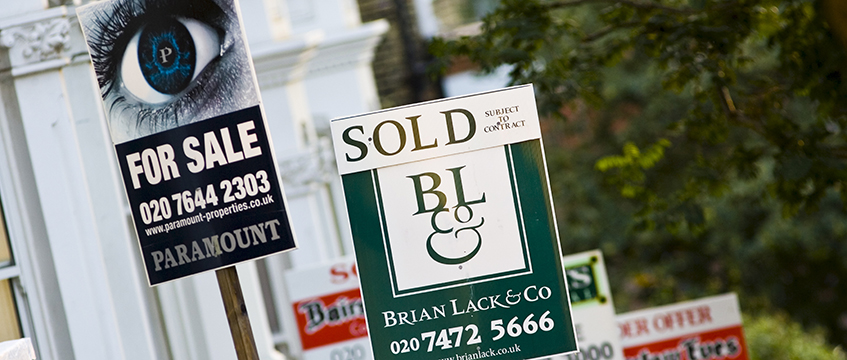Labour’s leasehold plans lacks nuance
The opposition has set out its plans for radical reform of the leasehold system. Are they a step too far?
As a new government forms and the Brexit process moves towards a resolution, a policy arms race has begun with Westminster turning its attention to other domestic policy matters.
Housing will inevitably be at the top of the political bill and leasehold reform has pan-political consensus as a platform on which both major parties can launch voter-friendly campaigns.
For Labour, it is an opportunity to politicise examples of bad practice in the leasehold residential sector, while for the Tories it is a way to promote the traditional conservative values of home ownership.
The opposition has set out its plans for radical reform of the leasehold system. Are they a step too far?
As a new government forms and the Brexit process moves towards a resolution, a policy arms race has begun with Westminster turning its attention to other domestic policy matters.
Housing will inevitably be at the top of the political bill and leasehold reform has pan-political consensus as a platform on which both major parties can launch voter-friendly campaigns.
For Labour, it is an opportunity to politicise examples of bad practice in the leasehold residential sector, while for the Tories it is a way to promote the traditional conservative values of home ownership.
Both parties are now mobilising. In June, the government laid out its policies on leasehold reform in its response to the Housing, Communities and Local Government Select Committee report. Last week, the Labour Party went one step further, publishing its New deal for leaseholders – a radical report outlining its own approach.
As the two engage in a bout of one-upmanship, leasehold reform is now at the forefront of political consciousness.
However, with a general election a distinct possibility, Labour’s policies require particular scrutiny, not least because they carry the implication that the residential leasehold tenure could be wiped out altogether.
Most significantly, Labour’s report proposes a ban on the sale of all new leasehold flats and houses, as well as granting existing leaseholders the ability to buy the freehold ownership of their home for just 1% of its value.
This would significantly reduce leasehold as a tenure and is the most important policy distinction between Labour and the government which, while supporting reform, has endorsed the principle of leasehold, calling it a legitimate form of ownership.
A sledgehammer to crack a nut
By not recognising that legitimacy, the opposition has overreached in its desire to undertake the most radical rewrite of English land law. While imperfect, the leasehold system has a valuable role to play and weakening it to such an extent would be damaging.
Where it works well, it helps millions of people to live together, with professional freeholder managers handling a range of formal compliance obligations – from enforcing covenants to debt recovery and fire safety.
Commonhold – which Labour cites as the replacement – would see residents become legally responsible for these often complex and onerous duties. While commonhold may suit simple and small developments, in more complex cases of large blocks of flats, leasehold is undoubtedly the most effective approach. Promoting genuine choice between the two should be the aim, a nuance missing from Labour’s policy, which instead seeks to dismantle leasehold rather than improve it.
In addition, a ban on new leaseholds will mean ground rents on new build houses are scrapped. Labour’s policy that existing ground rents will be capped at £250 could spell the end of freeholds as a viable investment.
Passing on the costs
Labour’s approach disproportionately demonises institutional investment in the sector. In reality, freeholds as an asset class form a huge part of capital funding for new developments and give housebuilders the financial capability to build affordable homes on large schemes.
The institutional freehold investment sector is estimated to have produced billions of pounds of investment in housing, of which a significant proportion has come from the ground rent revenue streams of leasehold flats. Labour seems to think this argument can be simplified to institutional entities versus the rights of the consumer, but it is not a binary debate.
Reform in the drastic way that Labour suggests would do more harm than good for homeowners. To help consumers, considered reform is required to ensure ground rents, service charges and event fees are kept at reasonable levels.
Scrapping ground rent outright, as Labour suggests, will only compound the problems and pass on costs to leaseholders by devaluing people’s existing homes and even causing service charges to increase in some situations.
These effects would be felt beyond just leaseholders. Pension and insurance schemes are major investors in freeholds and, as such, most of us have an interest in the continuation of freeholds as a robust investment class.
A better way
Leasehold reform is inevitable and should be welcomed, but Labour’s plan is not the way to go about it. Notwithstanding the social and financial ramifications of dismantling a centuries-old system, for Labour’s reforms to come into force, it must first go through the entire legislative process and face the inevitable legal challenges.
This will take years, if not decades to satisfy, when the majority of problems that exist within the leasehold sector could be resolved far sooner with a more pragmatic approach.
The quicker and most effective path to reform would be to enshrine in law an industry code of practice, which was launched earlier this year, and which has already been enthusiastically adopted in a pledge form by most of the key participants in the sector.
The pledge has already fostered reform and discouraged bad behaviour in the leasehold industry without the need for lengthy and expensive legislation.
Simple, practical improvements to the sector are needed rather than radical root and branch reform.
James Duncan is a real estate finance partner at Winckworth Sherwood











